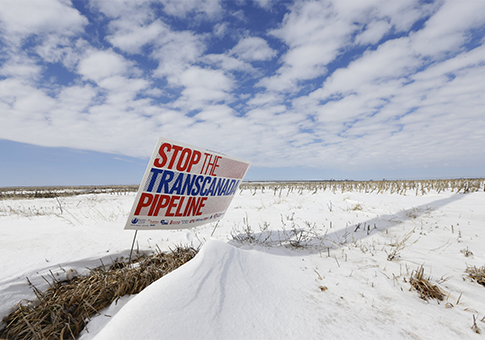Industry representatives say they’re not particularly concerned about President Barack Obama’s statement that the Keystone XL Pipeline should not be approved if doing so would increase carbon emissions.
The pipeline already meets that criterion, they say, as documented by the president’s own State Department.
"We think [Obama] has a lot of room to work with here," Matt Dempsey, a spokesman for Oil Sands Fact Check (OSFC), a site run by a coalition of energy producers, told the Washington Free Beacon in an email.
"Certainly raising the issue will quiet opponents [of the pipeline] for now," Dempsey added. "But a look at the facts show Keystone XL meets the President’s bar for approval."
He pointed to the State Department’s 2011 environmental assessment of the pipeline, which found that, "from a global perspective, the project is not likely to result in incremental [greenhouse gas] emissions."
"The incremental life-cycle emissions associated with the proposed Project are estimated in the range of 0.07 to 0.83 MMTCO2e annually," State detailed in a subsequent report.
That increase "is not considered to be a significant incremental increase" by State’s standards, Dempsey said.
In its March 2013 report, the department said it found "the approval or denial of any one crude-oil transport project, including [Keystone], remains unlikely to significantly impact the rate of extraction in the oil sands or the continued demand for heavy oil in the United States," as Assistant Secretary of State Kerri-Ann Jones noted in the wake of the report’s release.
That point echoed comments in the previous report, which found that State’s decision on Keystone "is not likely to impact the amount of crude oil produced from the oil sands."
Because Canada will still extract the crude, Dempsey said, rejection of the pipeline would not stop the fuel from being burned. Instead, it would simply be shipped to another oil consuming nation.
"In fact, if Keystone XL isn’t built, global greenhouse gas emissions are likely to increase because more oil sands crude would be refined in countries like China where current emissions standards allow three times more sulfur dioxide than in the United States," Dempsey wrote on OSFC’s website on Tuesday.
